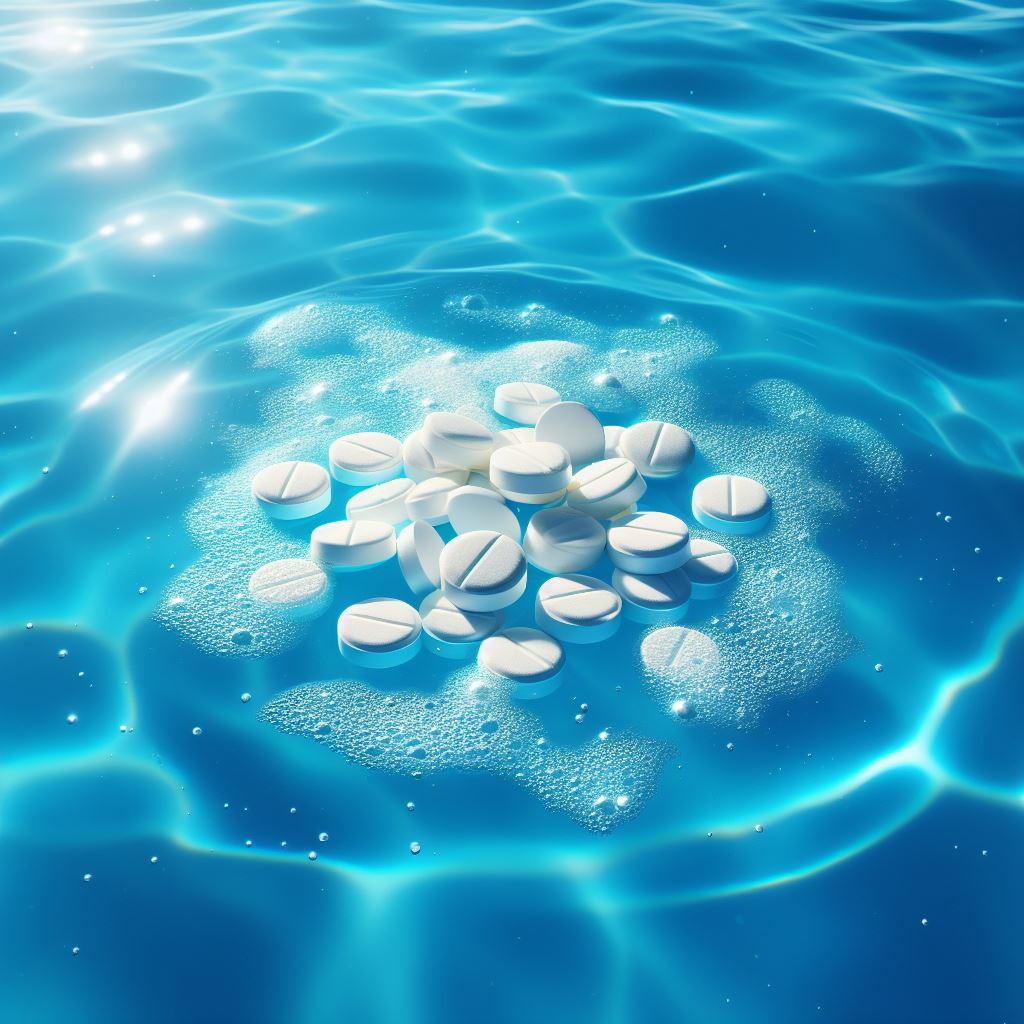Maintaining an inviting and hygienic swimming pool requires careful control of chlorine levels, and chlorine tablets are a popular choice for this purpose. This article aims to provide a comprehensive guide on the proper dosage and control of chlorine tablet additions to swimming pools, ensuring an optimal balance for water disinfection and safety.

Understanding Chlorine Tablets
Chlorine tablets are a concentrated form of pool sanitizer designed to disinfect and eliminate harmful bacteria and contaminants in the water. They are a convenient and effective way to maintain water quality, but precise control of their dosage is essential for achieving the desired disinfection levels without causing imbalances.
Pool Size and Water Volume Considerations
The first step in controlling chlorine tablet dosage is to consider the size and volume of the pool. Larger pools require more chlorine for effective sanitation, while smaller pools need a proportionally smaller dosage. Understanding the pool’s dimensions is crucial to prevent under-dosing or over-dosing, which can impact water quality and safety.
Chlorine Demand and Bather Load
The chlorine demand of a pool is influenced by factors such as the number of swimmers, environmental conditions, and water temperature. Higher bather loads or warmer temperatures may increase chlorine consumption. Regularly assess these factors to adjust the chlorine tablet dosage accordingly and maintain the desired chlorine residual in the pool.
Chlorine Tablet Dispensing Systems
Utilize advanced chlorine tablet dispensing systems to achieve precise control over dosage. Automatic feeders, floating dispensers, or in-line chlorinators are popular choices. These systems release chlorine tablets gradually, ensuring a consistent and controlled distribution throughout the pool. Regularly check and calibrate these dispensing systems to maintain accuracy.
Water Testing and Monitoring
Regular water testing is essential to determine the current chlorine levels in the pool. Use test kits or electronic monitors to measure both free and total chlorine levels. Adjust the chlorine tablet dosage based on the test results, ensuring that the pool remains within the recommended chlorine range for effective sanitation and safety.
Chlorine Tablet Dissolution Rates
Understand the dissolution rates of the chlorine tablets being used. Some tablets dissolve more slowly, providing a gradual release of chlorine over an extended period. Others may dissolve more rapidly, suitable for pools with specific needs. Adjust the dosage based on the tablet’s dissolution rate to maintain a consistent chlorine residual.
pH Balance Maintenance
Chlorine effectiveness is closely tied to the pool’s pH level. Regularly monitor and adjust the pH to the recommended range (typically 7.2 to 7.8) to ensure optimal chlorine performance. Imbalances in pH can impact the efficacy of chlorine, leading to either reduced disinfection or potential irritation for swimmers.
Environmental Factors
Consider environmental factors that may influence chlorine levels. Exposure to sunlight can accelerate chlorine degradation, requiring adjustments to dosage. Additionally, heavy rainfall or organic debris in the pool may increase chlorine demand, necessitating a temporary increase in tablet dosage to compensate.
Safety Precautions
While controlling chlorine tablet dosage is crucial for water maintenance, it’s equally important to follow safety precautions. Educate pool users about safe swimming practices, and store chlorine tablets in a cool, dry place away from other chemicals. Use protective gear when handling tablets and follow manufacturer guidelines for storage and usage.
Conclusion
Proper control of chlorine tablet dosage is paramount for maintaining a clean, safe, and enjoyable swimming pool. By considering pool size, water volume, chlorine demand, dispensing systems, water testing, dissolution rates, pH balance, environmental factors, and safety precautions, pool owners can establish a systematic approach to chlorine tablet dosage control. This ensures effective water disinfection, extends the life of pool equipment, and enhances the overall swimming experience.

 Instant
Quote
Instant
Quote Email
Us
Email
Us